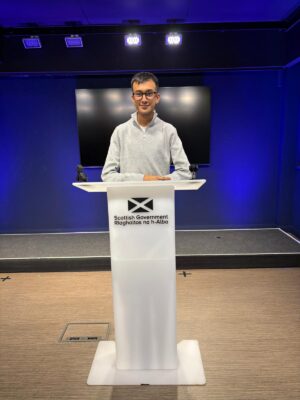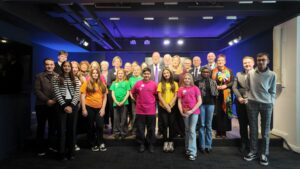In its present state, education in Scotland could be improved significantly. In the past century, the material changes in school’s classrooms have been minimal. There’s desks, chairs and a teacher at the front delivering a lesson. Scottish Education claims to be inclusive, yet we still see young people dropping out of school because “It’s not for them”. That is the sign of a system which needs to adapt. I for one have lost count of the amount of times I’ve hear my peers say “I hate school” or as ”why do we need to be learning this?” during my school years. So, when the Goodison Group invited me to participate in a think tank about the future of education arose, I leapt at the opportunity.
The Goodison Group in Scotland have been influencing education for well over two decades by collaborating with teachers, education specialists, and politicians. But most importantly, young people! They have just released their report titled ‘Schooling, Education and Learning in 2030 and Beyond’. It proposes some radical changes to the way education is currently structured.
Imagine not going to school or university. Instead going to a Hub, a learning community or a hive. Not leaving your own home at times, instead interacting with learning via virtual reality and holograms. There is now no such thing as a primary school, a secondary school or a college/university. Instead being replaced by Kindergarten, GenEd and Senior Phase retrospectively.
Kindergarten, embracing the culture of play based learning. A hub that supports the development of well-rounded individuals who will go on to positively contribute to our society. When young people hit GenEd they undertake a learning experience of broad range of subjects, and even offered a gap year when they turn 15 years old. This helps them to connect with their local community, learn the inner workings of businesses and charities. 16 – 21 year olds are offered a range of flexible academic, technical and cultural pathways, but are encouraged to learn through expression and creativity. Young people will learn how tax works, why we have a Prime Minister and how to get a mortgage. This is an inclusive model of education: there’s something for everyone.
Let’s not be afraid of adapting the education system in Scotland. Change involves cooperating with young people, and allowing them to be co-creators of their own education. That is how we make education in Scotland better.


